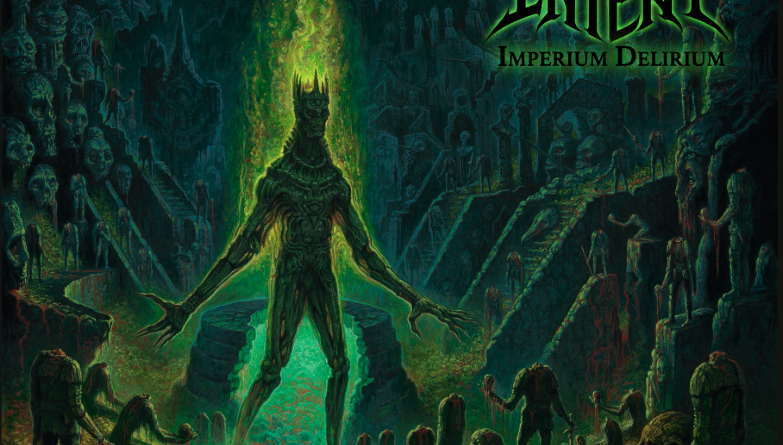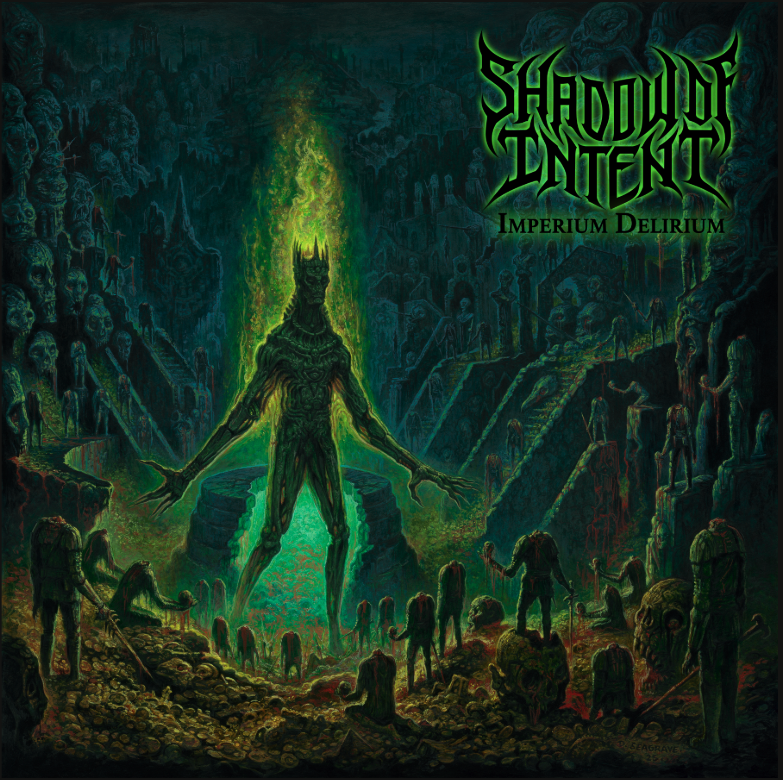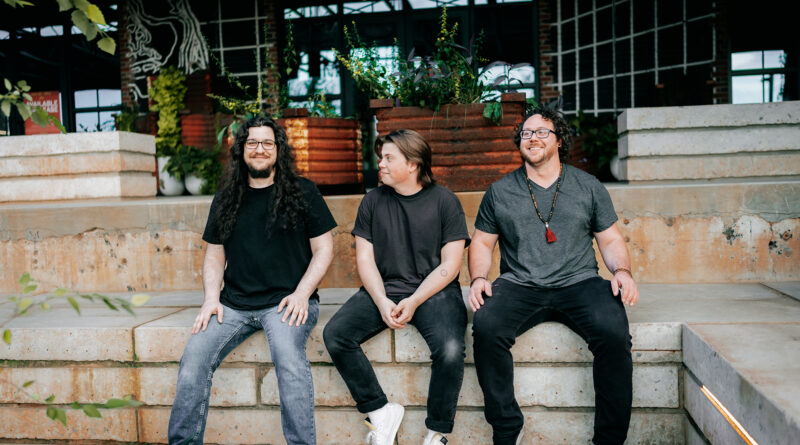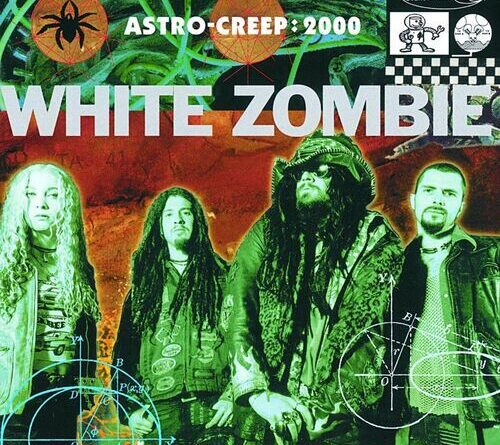
“Perhaps you’d better start from the beginning.” These seven words, sampled from the 1957 Hammer Horror classic The Curse of Frankenstein, kick off Astro Creep: 2000 – Songs of Love, Destruction and Other Synthetic Delusions of the Electric Head (or simply Astro-Creep: 2000), the fourth and final studio album from New York’sWHITE ZOMBIE. And to truly grasp the significance of both the band and this record, you have to go back to where it all began.
Music merchandise
Formed in 1985 on the gritty streets of New York City, back when the city still had a dangerous underbelly, WHITE ZOMBIE took their name from the 1932 Béla Lugosi horror film. They carved out a niche in the underground with a unique brand of grimy noise rock, sharing sonic territory with contemporaries like PRONG and COP SHOOT COP, but with an added obsession for horror, sci-fi, and B-movie sleaze that set them apart.
Their early albums, 1987’s Soul-Crusher and 1989’s Make Them Die Slowly, made waves in the underground scene, but it was 1992’s La Sexorcisto: Devil Music Vol. 1 that changed everything. The band shifted towards a groove-driven, sample-heavy sound that amplified their love of the bizarre. It was weird, wild, and it worked.
Their visibility skyrocketed thanks to appearances in the Brendan Fraser/Steve Buscemi/Adam Sandler rock comedy Airheads, and breakout tracks like Thunder Kiss ’65 and Black Sunshine dominated MTV. Perhaps most notably, Beavis and Butt-Head gave them the kind of approval that, at the time, could launch a band into the stratosphere. Suddenly, WHITE ZOMBIE were one of the biggest metal acts on the planet, emerging just as grunge was starting to lose its hold on the mainstream.
Recorded in late 1994 with legendary producer Terry Date, Astro-Creep: 2000 would turn out to be WHITE ZOMBIE’s final studio album, though they didn’t know it at that time. In hindsight, what a way to bow out.
Online movie streaming services
Music merchandise
Now featuring drummer John Tempesta (ex-EXODUS and TESTAMENT), the lineup – Rob Zombie (vocals), Sean Yseult (bass), Jay Yuenger (guitar), and Charlie Clouser (keys/programming) – took everything that worked on La Sexorcisto and pushed it to the extreme. The result? A sleazy, industrial-tinged metal odyssey that was as outrageous as it was infectious.
Blending metal, funk, punk, and industrial with perfectly placed samples (from cult classics like The Omega Man, The Haunting, and To the Devil a Daughter, to an eerie interview with Manson family member Patricia Krenwinkel) Astro-Creep: 2000 is a fever dream of horror, paranoia, and raw energy. The lyrics, heavily inspired by The Texas Chainsaw Massacre and other genre fare, only add to the nightmarish vibe.
Opening with Electric Head, Pt. 1 (The Agony), the album pulls listeners headfirst into WHITE ZOMBIE’s twisted world. It’s a relentless ride through tracks like Super-Charger Heaven, Real Solution #9, I, Zombie, and the iconic More Human than Human, songs that became bona fide anthems. Elsewhere, trippy cuts like El Phantasmo and the Chicken-Run Blast-O-Rama and Blood, Milk and Sky reveal the band’s more psychedelic, unhinged side. Together, it’s the definitive WHITE ZOMBIE experience.
With the album out, the band hit the road hard, playing with the likes of KYUSS, THE MELVINS, and the Ramones. Their UK return came at Donington 1995, personally invited by METALLICA to join a stacked lineup that included MACHINE HEAD, SLAYER, and CORROSION OF CONFORMITY. As the eerie opening of Electric Head, Pt. 1 played out over the PA, anticipation gave way to chaos. WHITE ZOMBIE delivered a scene-stealing set, repeating the feat at Reading the very next day and firmly establishing themselves as the hottest band in US metal.
Their headline UK tour followed soon after, with Astro-Creep: 2000 at the heart of the setlist. The tour was met with critical acclaim and brought in waves of new fans, many of whom had only just caught up with the band’s wild ride.
Sadly, it didn’t last. WHITE ZOMBIE split just a year later, following the release of Supersexy Swingin’ Sounds, a remix album of Astro-Creep: 2000 cuts. A massive co-headline US arena tour with PANTERA came and went, but the band never returned from its hiatus. Instead, the members moved on to other projects, with ROB ZOMBIE launching a hugely successful solo and film career.
Online movie streaming services
While Zombie’s solo work may have sold more records and filled bigger venues, he’s never topped Astro-Creep: 2000. It remains not only WHITE ZOMBIE’s finest moment, but one of the most essential and enduring metal albums of the 1990s. A record that, even in 2025, still sounds just as thrilling, chaotic and vital as the day it was released.
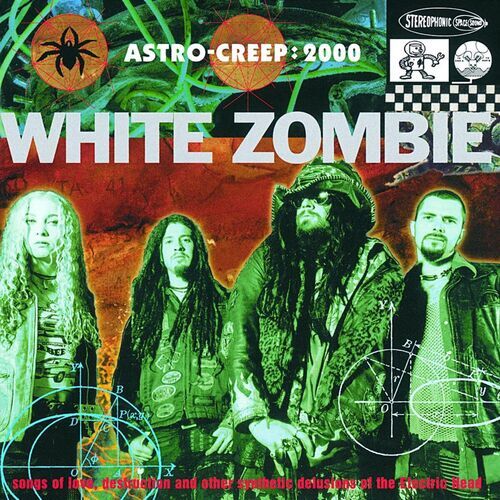
Astro-Creep: 2000 – Songs of Love Destruction and Other Synthetic Delusions of the Electric Head was originally released on April 11th, 1995 via Geffen Records.
Like WHITE ZOMBIE on Facebook.


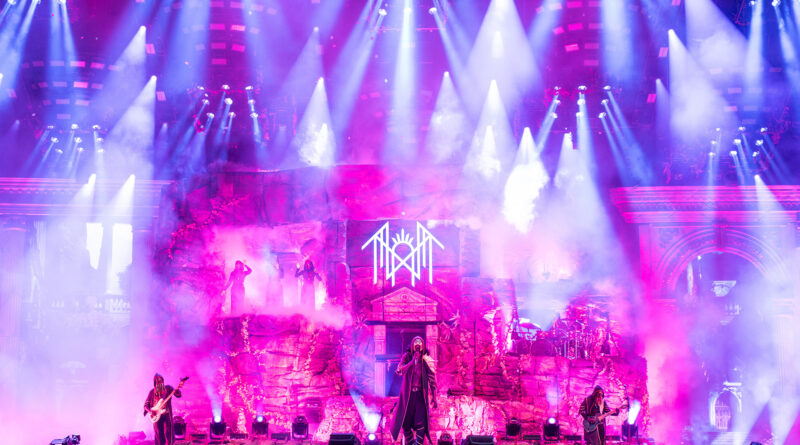
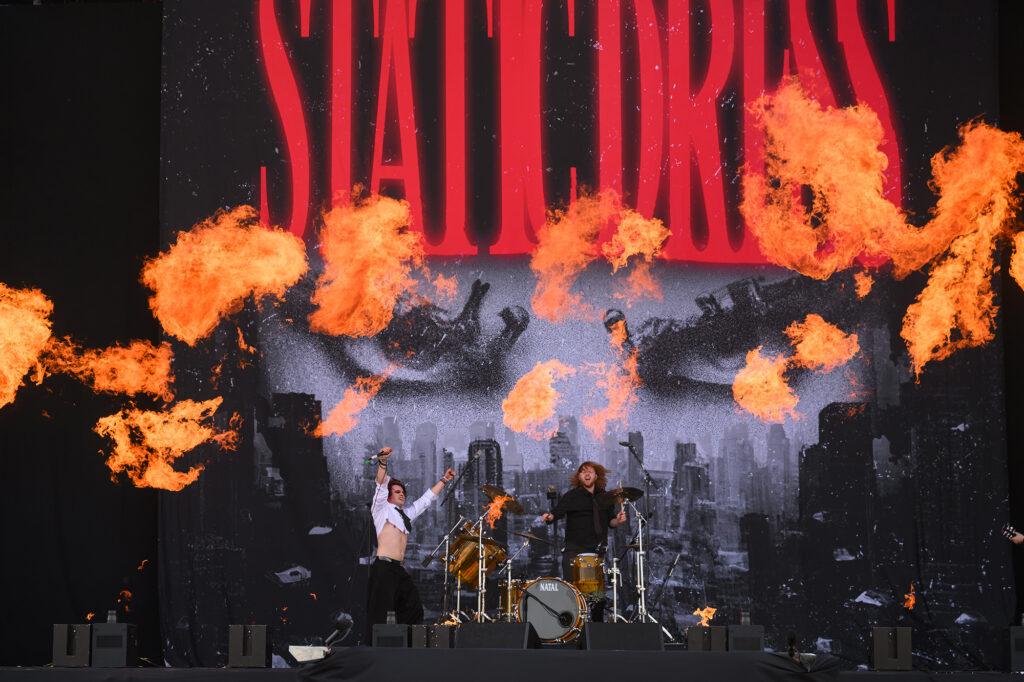 Static Dress live @
Static Dress live @ 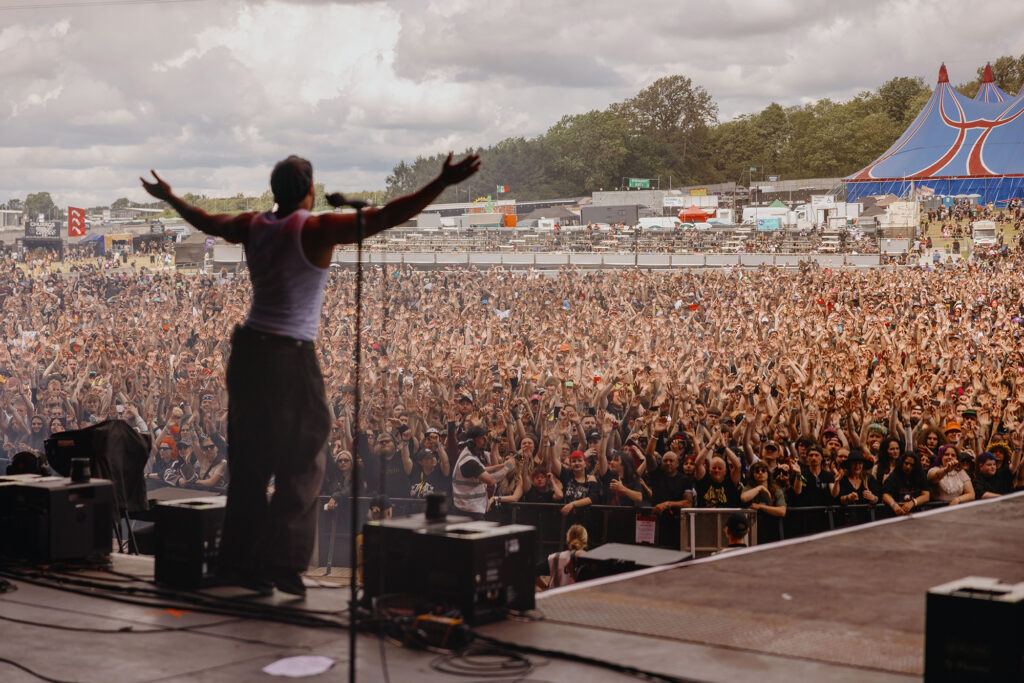 Loathe live @ Download Festival 2025. Photo Credit: Danny North
Loathe live @ Download Festival 2025. Photo Credit: Danny North Poppy live @ Download Festival 2025. Photo Credit: Danny North
Poppy live @ Download Festival 2025. Photo Credit: Danny North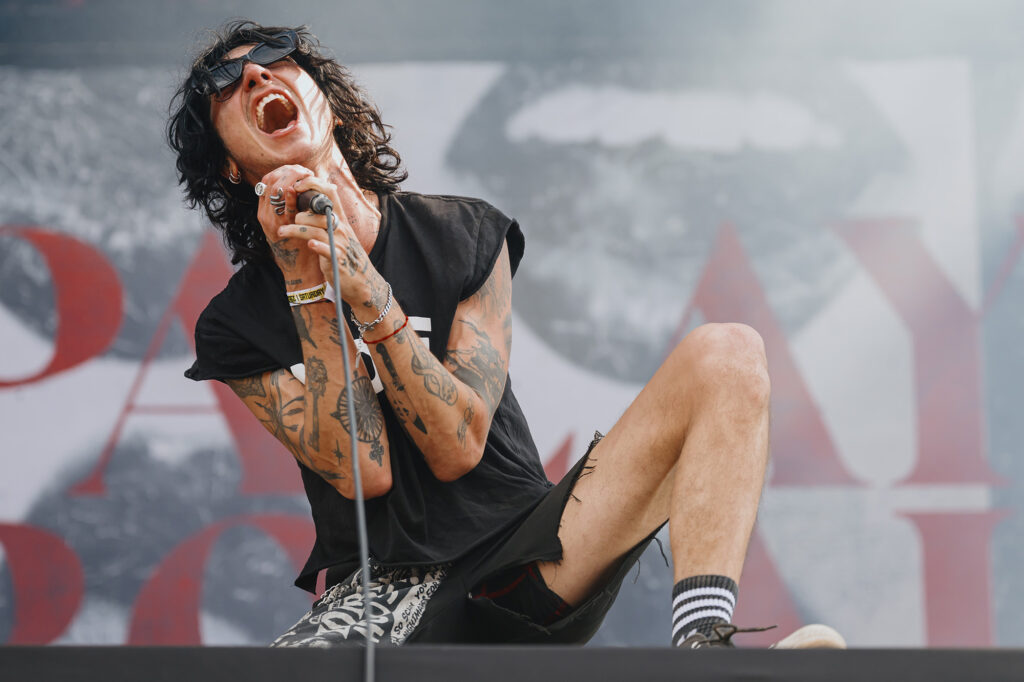 Palaye Royale live @ Download Festival 2025. Photo Credit: Todd Owyoung
Palaye Royale live @ Download Festival 2025. Photo Credit: Todd Owyoung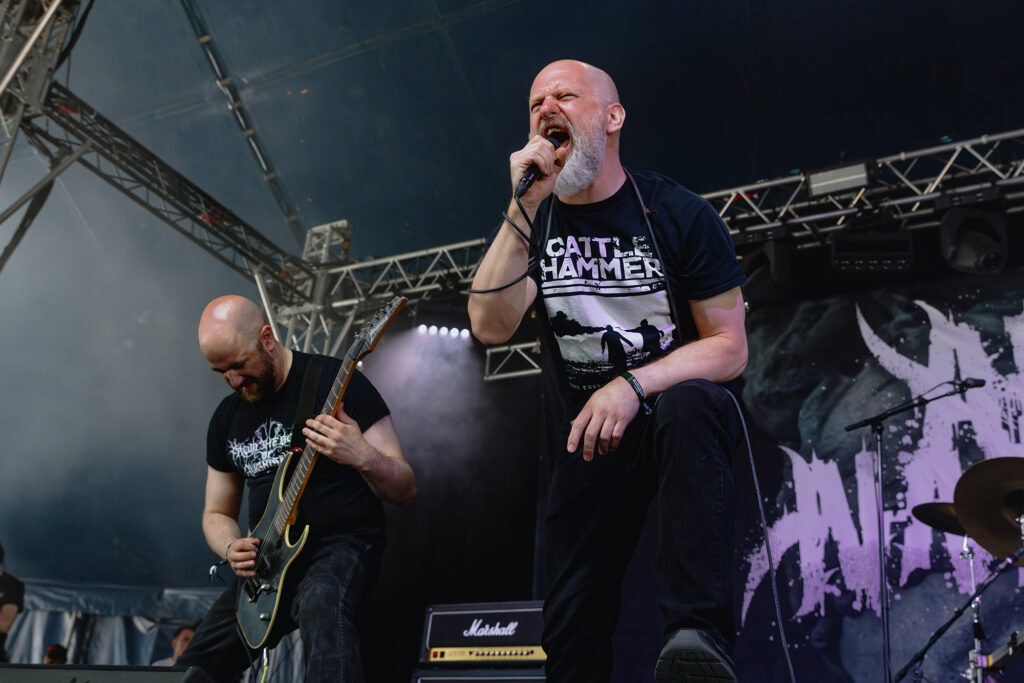 Anaal Nathrakh live @ Download Festival 2025. Photo Credit: Gobinder Jhitta
Anaal Nathrakh live @ Download Festival 2025. Photo Credit: Gobinder Jhitta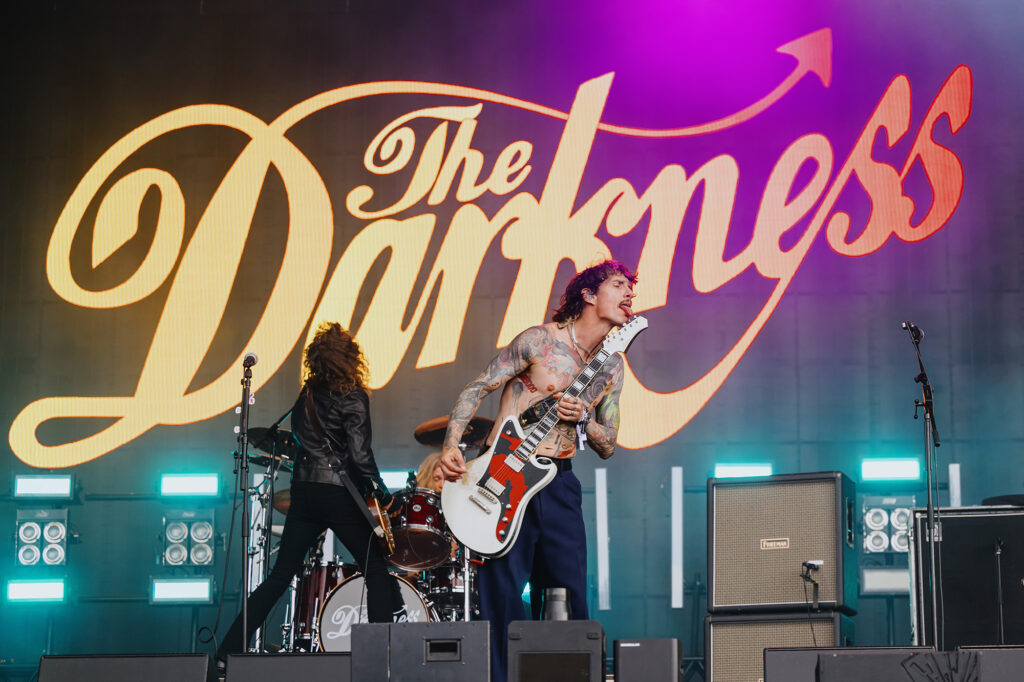 The Darkness live @ Download Festival 2025. Photo Credit: Todd Owyoung
The Darkness live @ Download Festival 2025. Photo Credit: Todd Owyoung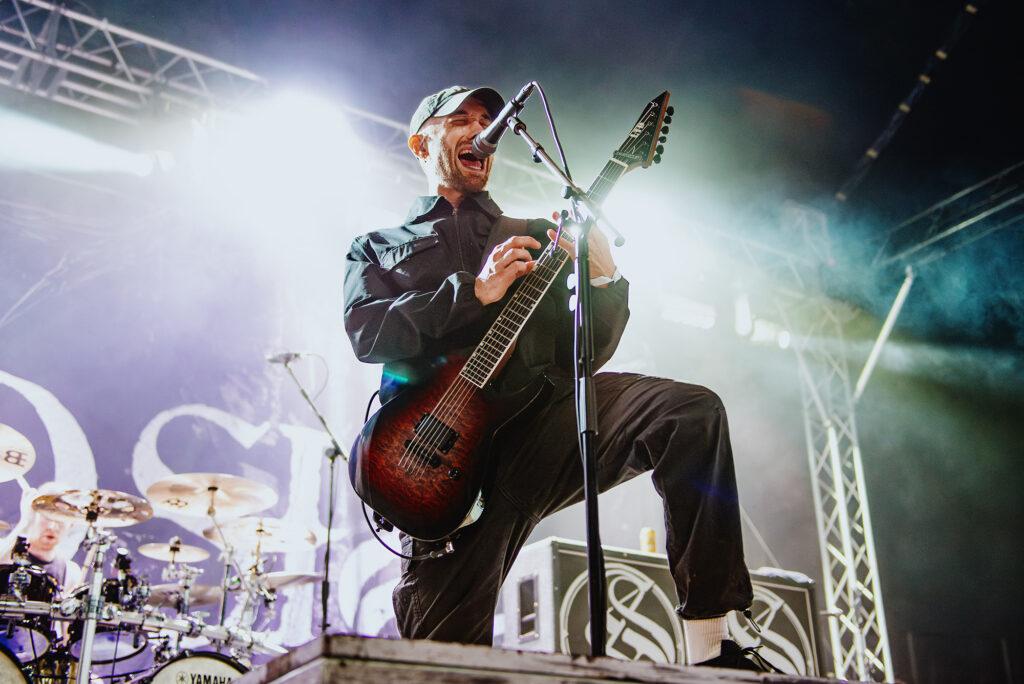 Sylosis live @ Download Festival 2025. Photo Credit: Carolina Faruolo
Sylosis live @ Download Festival 2025. Photo Credit: Carolina Faruolo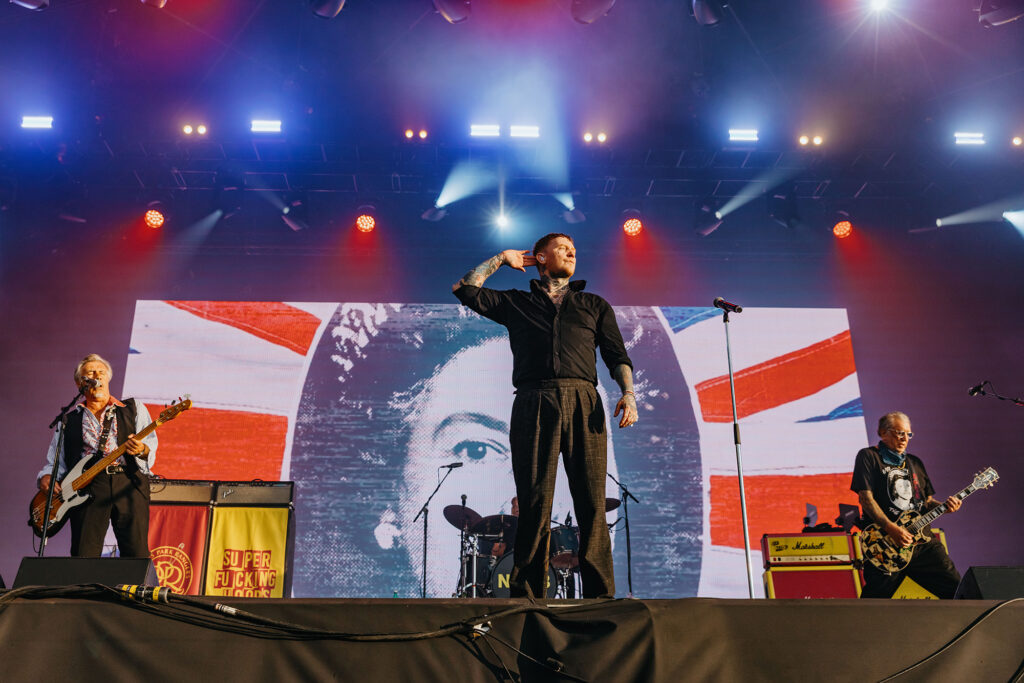 Sex Pistols live @ Download Festival 2025. Photo Credit: Andrew Whitton
Sex Pistols live @ Download Festival 2025. Photo Credit: Andrew Whitton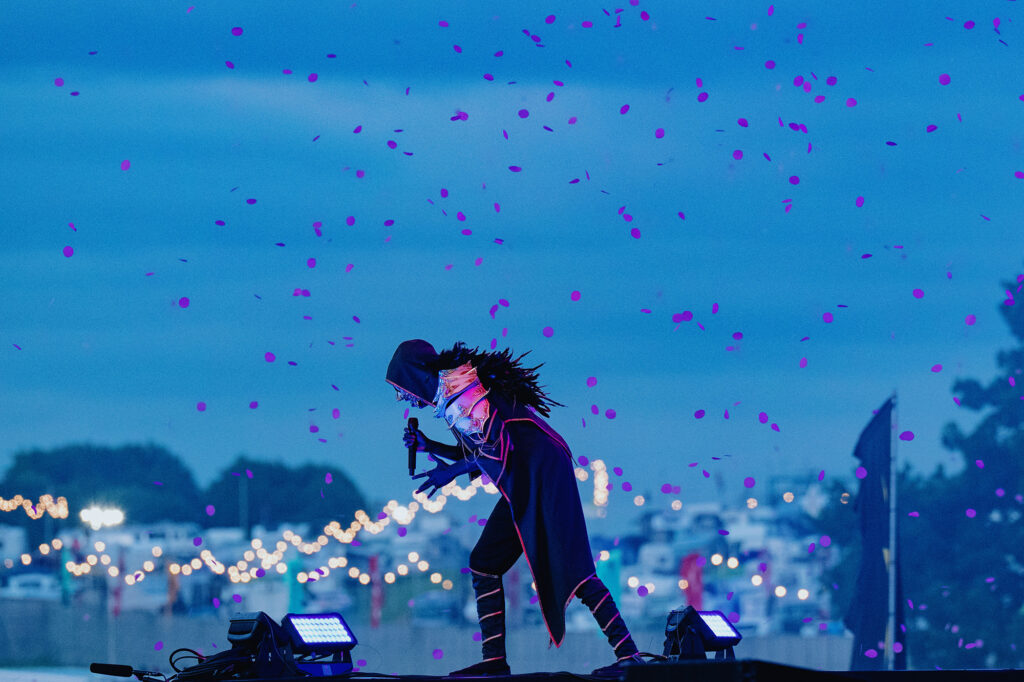 Sleep Token live @
Sleep Token live @ 